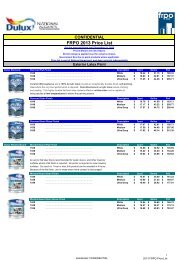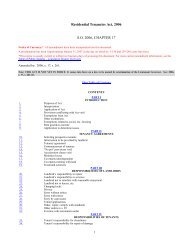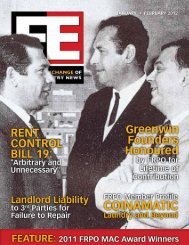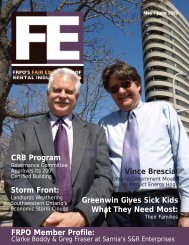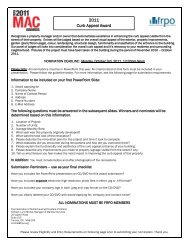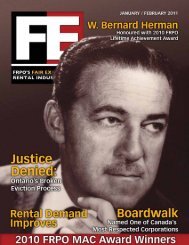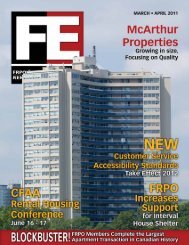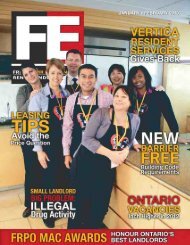Create successful ePaper yourself
Turn your PDF publications into a flip-book with our unique Google optimized e-Paper software.
• Vocalize your responses in advance. Knowing a subject thoroughly and crafting a written<br />
response in the clearest, simplest terms are helpful. But you won't really know how clearly<br />
you can explain something vocally until you do just that. Start with a sympathetic listener<br />
on your home turf.<br />
• Supply background material beforehand. It helps an interviewer to have explanatory information<br />
on details he or she may not have known enough about to ask. Your function should<br />
be to comment on issues and situations, not to conduct a seminar on what those issues are<br />
for the interviewer.<br />
• Maintain some control from the beginning. In a face-to-face interview, begin if there's time<br />
by asking the interviewer about his or her background. It will make the following conversation<br />
sound less like the interrogation of a hostile witness. You can't do this effectively in a<br />
phone interview.<br />
• If the interviewer is a novice, it helps to reinforce your credentials<br />
as the expert in this matter. Don't treat the novice reporter<br />
with disdain because it will come back to haunt you. If the<br />
interviewer is highly knowledgeable, you've been forewarned.<br />
• Don't be misled by the apparent simplicity of questions. If<br />
you are worth being interviewed, there is news value in<br />
quoting you directly.<br />
• Don't answer hypothetical questions. You might turn them<br />
around by explaining what your organization's policy has<br />
been in the past, but there's nothing to be gained by locking<br />
yourself into a position based on a hypothetical situation.<br />
• Don't presume to redirect the story line. You may well prefer<br />
news coverage of something unrelated to what the editor or<br />
reporter wants to write or broadcast about. The interviewer<br />
may listen politely, but if what you say is considered a nonstory,<br />
you've wasted time -- yours and the interviewer's.<br />
...if you're a business<br />
leader you owe it to<br />
your shareholders,<br />
your employees, your<br />
customers and<br />
suppliers to enhance<br />
your organization's<br />
visibility in the<br />
marketplace.<br />
• Never buffalo a reporter, even a novice. You'll only get away with it as long as the interview<br />
itself lasts. Eventually, your comments will cross the desk of a much more worldly editor or<br />
producer, who will recognize bafflegab for what it is. Story killed!<br />
Fair Exchange • <strong>Sep</strong>tember / <strong>Oct</strong>ober <strong>2009</strong><br />
A Final Thought:<br />
If you expect to be the subject of media attention on a regular basis, consider media training. Its<br />
personal development at its best and if you learn how to deal with the news media, you can deal<br />
with anyone. F<br />
David Eisenstadt, Fellow PRSA, Fellow CPRS, is Founding Partner with The Communications Group Inc.,<br />
a Toronto-based public relations consulting firm serving corporate clients across Canada… www. tcgpr.com<br />
34



